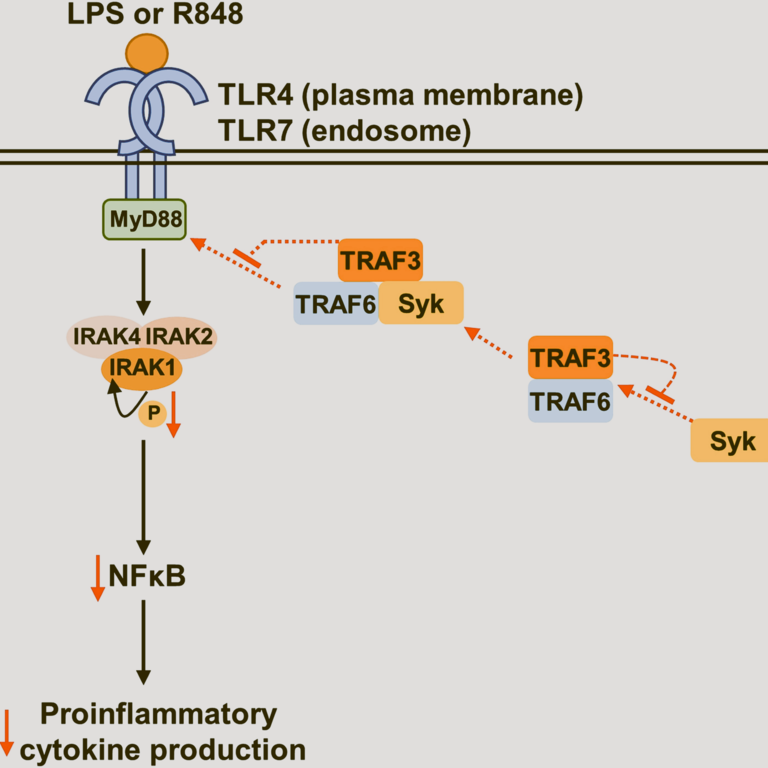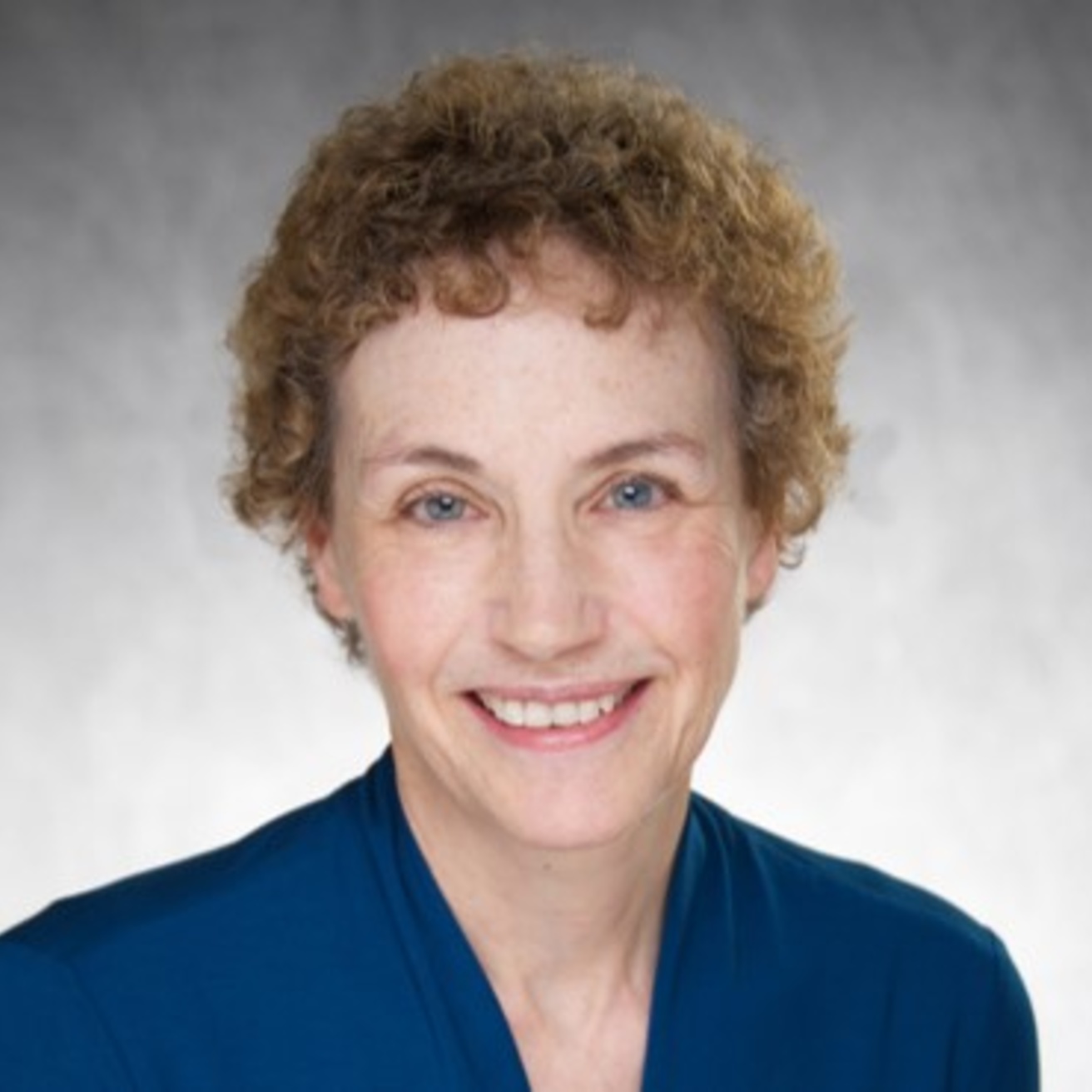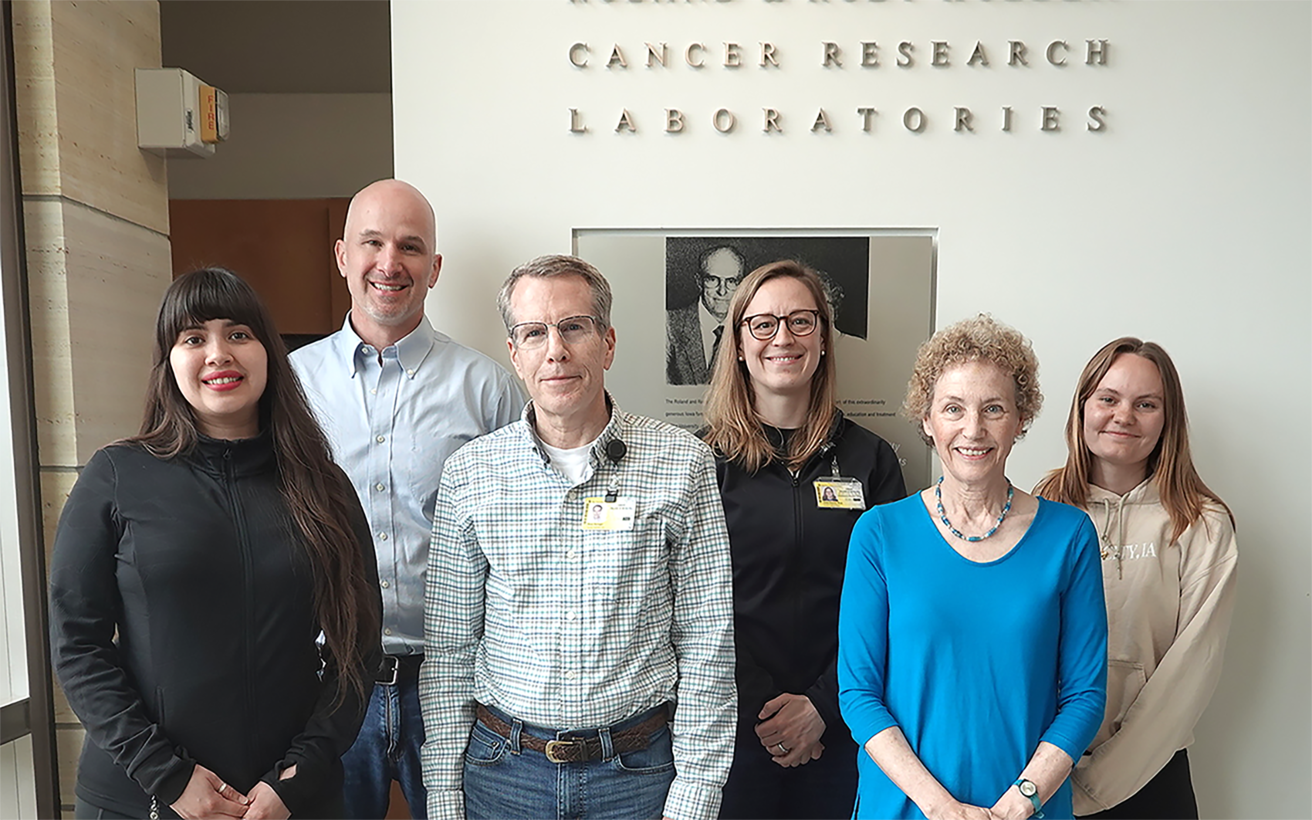Welcome to the Bishop Lab

Figure 8
Model of TRAF3-mediated regulation of proximal TLR signaling proteins. TRAF3 forms a constitutive complex with TRAF6, which recruits the tyrosine kinase Syk. This complex localizes near the TLR-mediated Myddosome. TRAF3 inhibits the Syk–TRAF6 association that promotes signaling downstream of the Myddosome, including activation of IRAK proteins and subsequently the NFκB pathway that leads to the proinflammatory cytokine production. TRAF3 thus constrains TLR signaling in B cells to prevent excessive activity of proximal TLR proteins and thus restrain inflammatory pathways. TRAF3-mediated regulation thus makes an important contribution to the maintenance of optimal TLR signaling to B cells.
Tiffany K Ybarra, Gail A Bishop, TRAF3 regulation of proximal TLR signaling in B cells, Journal of Leukocyte Biology, (2024)
Research
We are interested in the molecular mechanisms which underlie the processes of lymphocyte activation and tolerance. Our particular areas of current focus are in lymphocyte signaling and interactions between innate and adaptive immune receptors.
The following is a summary of key projects ongoing in the lab:
1. How does TRAF3 regulate B lymphocyte survival and activation? How does TRAF3 act as a tumor suppressor in B cell cancers? How does loss of TRAF3 in aging and chronic inflammation contribute to autoimmunity and predispose to malignancy?
2. What roles does TRAF3 play in regulation of signaling and effector functions of T lymphocytes?
3. How does CD40 signaling contribute to early resistance of cells to infection with Ebola and SARS-CoV-2 viruses?
Learn More about our Research
Gail A. Bishop
Gail A. Bishop received the Ph.D. degree in Cellular and Molecular Biology from the University of Michigan, Ann Arbor, MI, in 1983. Her doctoral thesis focused upon the immune response to Herpes Simplex virus, under the mentorship of Drs. Joseph Glorioso and Stanley Schwartz. This was followed by postdoctoral work at the University of North Carolina, Chapel Hill, NC, in the laboratories of Drs. Geoffrey Haughton and Jeffrey Frelinger, focusing upon understanding the molecular mechanisms of B lymphocyte activation and the structure-function relationship of B cell signal receptors.
She was appointed Assistant Professor of Microbiology at the University of Iowa in 1989, was promoted to Associate Professor with tenure in 1994, and to Professor in 1998. She was appointed as endowed College of Medicine Distinguished Professor of Microbiology in 2001, and Holden Chair of Cancer Biology in 2004. From 1998-2013, she served as the Director of the Ph.D.-granting Immunology Graduate Program. In 2004, she was appointed Associate Director for Basic Science Research of the Holden Comprehensive Cancer Center.
Dr. Bishop served as both an Associate and Section Editor of The Journal of Immunology. She served on the Cell Biology and Signal Transduction grant review panel of the National Science Foundation, the Microbiology & Immunology review panel of the American Heart Association, and served as both a member and Chair of the NIH Tumors, Tolerance, and Transplantation study section. In 2003 she received the University of Iowa Graduate Mentoring Award, and in 2009 was awarded the Iowa Technology Association’s “Woman of Innovation” award for academic research innovation and leadership. Dr. Bishop received the Bonazinga Award for excellence in Leukocyte Biology Research from the Society for Leukocyte Biology in 2015, as well as the State of Iowa Regents Award for Faculty Excellence. She received the 2022 Hubbard-Walder Award for Excellence in Teaching.
Dr. Bishop served on the Council of the American Association of Immunologists from 2007-2011, as AAI Vice-President 2011-12, as President 2012-13, and Past President 2013-14. She currently served as the AAI representative to the Council of the International Union of Immunology Societies 2016-2022. In January 2024, Dr. Bishop became Editor in Chief of The Journal of Immunology.
Dr. Bishop was named a Distinguished Fellow of the AAI in 2019, and a Fellow of the American Association for the Advancement of Science in 2020. She was selected as the 2022 inductee to the Society for Leukocyte Biology Honorary Life Members.

Current Positions
Lab News
Tiffany Ybarra was selected for an oral presentation and travel award to the annual meeting of American Association of Immunologists in May 2023.
Emma Hornick was appointed as a Public Policy Fellow of the American Association of Immunologists.
Gail Bishop became Editor in Chief of The Journal of Immunology in January 2024.

